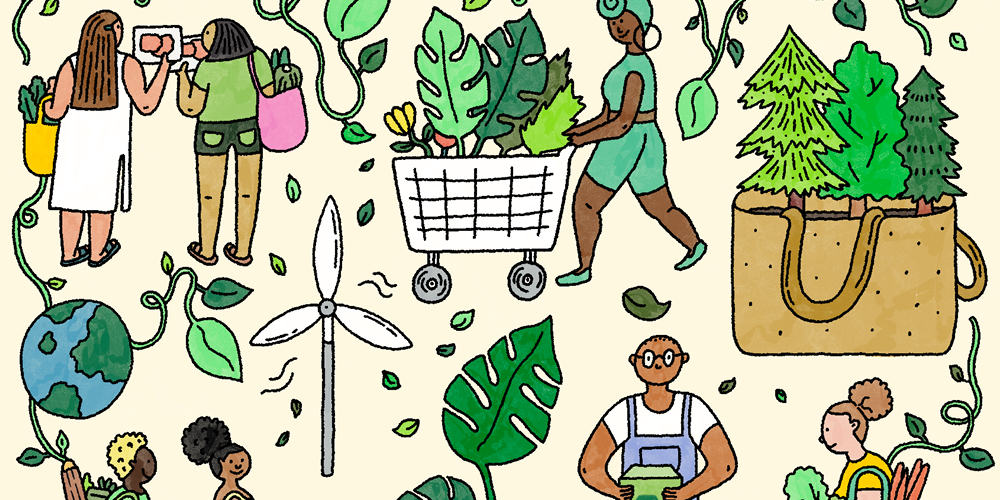Over the past few years, there has been a significant shift in the shopping habits of consumers. Increasingly, people are prioritizing ethical purchases and choosing sustainable products over those that harm the environment or exploit workers. This change is driven by a growing awareness of the impact of our consumption habits on the planet and society at large.
One of the biggest drivers of this trend is the rise of sustainability as a mainstream issue. With climate change and environmental degradation becoming more pressing concerns, many people are realizing that their personal choices can have a significant impact on the world around them. As a result, they are taking steps to reduce their carbon footprint and minimize their impact on the environment. This includes choosing products that are made from sustainable materials, have a low carbon footprint, and are produced in an ethical and socially responsible way.
Another key factor in the rise of sustainable shopping is the growing awareness of the ethical implications of our consumption habits. For example, many people are choosing to buy products that are produced using fair labor practices and that do not exploit workers in developing countries. They are also avoiding companies that engage in environmentally damaging practices, such as deforestation or the use of toxic chemicals in production.
One of the most notable changes in consumer behavior is the shift towards purchasing products that have been certified as sustainable or ethically produced. Many companies now offer certifications that provide consumers with information about the materials used in their products, the labor practices used in production, and the environmental impact of their practices. These certifications help consumers make informed choices about the products they buy, and they also provide companies with an incentive to improve their sustainability and ethical practices.
There are also technological solutions that are making sustainable shopping easier and more convenient. For example, many apps and online platforms now allow consumers to easily compare the sustainability of different products and companies. This makes it easier for consumers to make informed decisions about what they buy, and it also puts pressure on companies to improve their sustainability practices in order to remain competitive.
Overall, the rise of sustainable shopping is a positive trend that is driven by a growing awareness of the impact of our consumption habits on the planet and society. As consumers, we have the power to make a difference by choosing products that are sustainable, ethical, and socially responsible. By making these choices, we can help create a more sustainable and just world for future generations.


